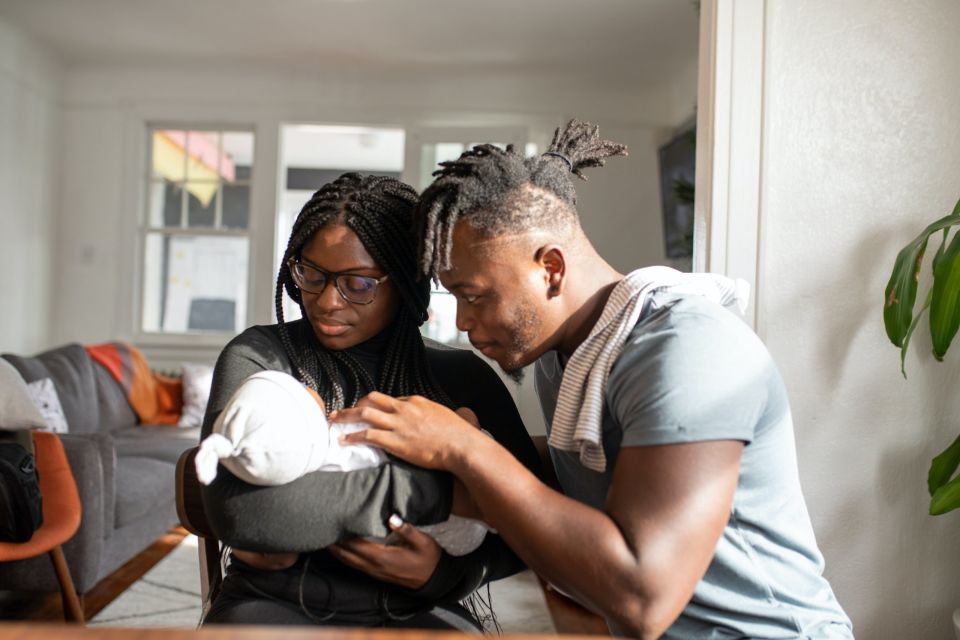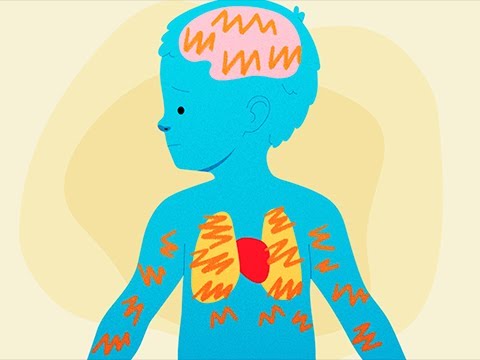This article was written by Heidi Murkoff, author of the “What to Expect When You’re Expecting” series and creator of WhatToExpect.com, where you can find the original publication of this article.

Quick — what’s the best gift you can give your baby? Hint: it’s something you can’t register for, buy or even borrow. It’ll help your baby learn language and social skills, spur your baby’s physical, intellectual and emotional growth, and most of all, make your baby feel secure and loved, cared for and cared about.
Of course, it’s you. There’s no better toy, there’s no better playmate, there’s no better teacher than you. And right from that first snuggle, first gaze into those precious eyes, first whispered “I love you,” you’ve got everything it takes to give your baby everything she needs to know about the world right now — and to promote the mind-boggling development your little one’s brain will be making in the first months of life, especially in the first 100 days.
And it’s a lot easier than you’d think. It’s the little things, in fact, that make the most difference to little ones. Better still, they’re the things that come naturally to parents, and best of all, they’re free.
Love your baby. Here’s a baby-brainpower no-brainer: Nothing helps a baby grow and thrive as much as being loved unconditionally. And no, you can’t spoil your baby with love — but you should absolutely try, every chance you get.
Cuddle your baby. Not like you need a reason to hold that sweet bundle tight early and often, but here goes: Your nurturing touch nurtures your baby’s brain development, right from the start. So bring on the cuddles, wear your baby, massage your baby, stroke your baby’s cheeks, clutch those tiny fingers, caress those teensy toes. And remember, skin-to-skin isn’t just for after delivery — the feel-good hormone it releases, oxytocin, continues to nourish her brain. And in case you’re wondering, that’s true when a dad goes skin to skin with his baby, too (fur doesn’t stop the flow of oxytocin). Someone’s telling you that holding your baby too much will make him too dependent. Actually, the opposite is true, since being held nurtures a baby’s sense of confidence and security, ultimately allowing him to feel more comfortable letting you go. And for now, stating the obvious: Babies are supposed to be dependent on their parents.
Talk to your baby. Your baby is all ears— born ready to hang on your every word, and slowly but surely, learn what those words mean and how to speak them. There’s no better way to teach your baby his mother (and father) tongue than by talking to him. What should you say and how should you say it? Whatever comes naturally — whether it’s full-on baby talk (“Who’s my little bunny wunny?”), a blow-by-blow as you change a blow-out poop, a narration as you pour your morning OJ, a weather update or endless questions that she clearly can’t respond to but will love hearing you ask and answer (“Would you like to wear the blue pants with the polka dots or the pink ones with the stripes? Good idea! Let’s do the blue ones!”).
Read to your baby. Yes, read. Early bookworms may not know a hungry caterpillar from a honey-loving bear, but she’ll learn volumes from story time from day one — a good reason to make story time a part of her daily routine. Any time is a good time to read to your baby, and really, anything goes at first — you can read aloud from anything you’re reading. But why not begin with babyhood classics she’ll come to treasure: Good Night Moon, Guess How Much I Love You, Brown Bear, Brown Bear.
Sing to your baby. So you’re not exactly The Voice? That’s okay — you’re the best voice your baby has ever heard. Out of key? Forgot the words? Doesn’t matter. Your baby will love listening to your singing — whether it’s “Twinkle, Twinkle, Little Star” or “Starman”...or “The Star-Spangled Banner.”
Look at your baby. You only have eyes for your baby — and that’s a good thing, because eye contact speaks as loudly as words, and communicates just as much if not more. It’s so vital to a baby’s brain development that Mother Nature actually designed a newborn’s eyes to see and focus objects that are about 8 to 12 inches away — the distance between a baby cuddled at the breast and a mother (or father’s) face. Your baby will look for and connect with your gaze right from birth. A good reason to keep your eyes off your screen) — and on that prize.
Remember that your baby’s brain is developing from the moment she’s born. How can you fuel that growth? It’s simple: Talk. Read. Sing. It changes everything.





